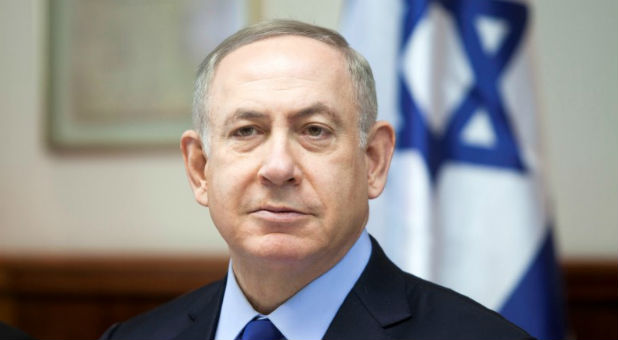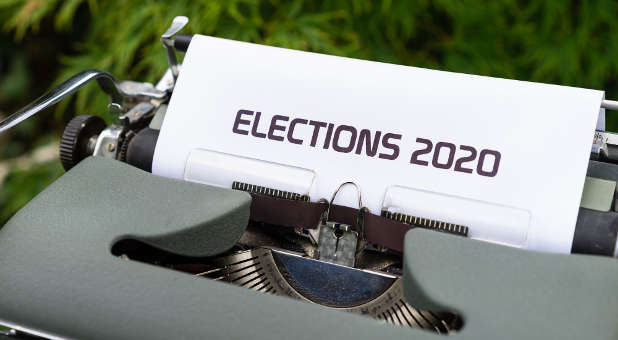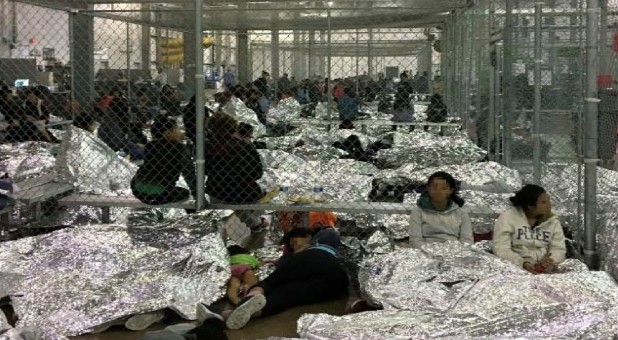The Trump administration is undecided about relocating the U.S. Embassy in Israel from Tel Aviv to Jerusalem, a campaign promise that carries historical and symbolic significance to Israelis, Palestinians and the broader Middle East.
On Monday, White House press secretary Sean Spicer said there are “no decisions” on relocating the embassy to Jerusalem, a move that previous Republican and Democratic presidents have also promised to do, but decided against to avoid taking sides over who controls the ancient and holy city.
As President Donald Trump’s administration decides whether to break that tradition, observers of the Israeli-Palestinian conflict say this president appears serious about moving the embassy, based on his consistent campaign rhetoric and his decision to pick David Friedman as ambassador to Israel.
Friedman has opposed a two-state solution, and upon being nominated, said he looked forward to working “from the U.S. Embassy in Israel’s eternal capital, Jerusalem,” rather than Tel Aviv.
“What’s interesting is that many presidents have made this same promise during campaigns and failed to follow through,” said Jonathan Schanzer, a scholar in Middle Eastern studies and vice president of research at the Foundation for Defense of Democracies.
“This time, it looks like things may be different, given Trump’s selection of Friedman as ambassador and the statements both of them have made,” Schanzer told The Daily Signal in an interview.
Because Jerusalem is a contested city, the U.S. Embassy’s location in Tel Aviv, the commercial and cultural hub of Israel, has long been a diplomatic challenge for American and Israeli leaders.
U.S. policy officially says the embassy should be moved to Jerusalem.
A 1995 U.S. law passed by bipartisan margins and signed by President Bill Clinton declares Jerusalem to be Israel’s capital and requires the embassy to be moved there.
Yet since its passage, Clinton, and Presidents George W. Bush, a Republican, and Barack Obama, a Democrat, have chosen not to implement the move, using a presidential waiver every six months that the law allows for national security reasons. The latest waiver expires June 1, and it’s unclear if Trump could move the embassy before then, experts say.
Israel’s parliament, Supreme Court and seat of government are already located in West Jerusalem, which is majority Jewish. Indeed, Israel is the only nation in the world where the U.S. doesn’t keep an embassy in the host government’s preferred capital.
But in the 1967 war between Israel and its Arab neighbors, Israel took control and annexed East Jerusalem—which is predominantly Arab—and expanded the boundaries of what it calls its “eternal capital.”
The U.S. and most other countries have refused to recognize the annexation and kept their embassies in or around Tel Aviv.
Moving the embassy to Jerusalem, experts say, could please Israeli Jews, who believe it would signal that the U.S. recognizes Israel’s claim to the entirety of the city. It could also reassure the right-wing government of Prime Minister Benjamin Netanyahu after the Obama administration allowed the adoption of a United Nations Security Council resolution that condemns Israel’s settlement construction.
For Palestinians and supporters in the Arab world, however, moving the embassy to Jerusalem would prejudge Palestinian claims to a capital in the city’s east and supersede a final resolution to the conflict with Israel. In addition, the move could increase the risk of violence as Palestinians look to defend Jerusalem.
“It would bolster Israel, the closest U.S. ally in the Middle East, but it also may make it harder for some Arab governments to openly cooperate with the U.S. on some security issues because it is likely to trigger a spasm of anti-American protests and riots,” said Jim Phillips, an expert on the Middle East at The Heritage Foundation.
Yousef Munayyer, a nonresident scholar at the Middle East Institute, fears that moving the embassy would taint the U.S. as a mediator in the Israeli-Palestinian conflict.
“Nonrecognition has been a pillar of U.S. peace process policy,” Munayyer told The Daily Signal in an interview. “If that pillar crumbles, there will be a question of the U.S.’ ability to uphold its credibility in carrying that out. When you combine that with Israel’s recent settlement activity, it’s impossible to see how these things make prospects for a peaceful resolution more likely.”
Schanzer counters that if the Trump administration were to move the U.S. Embassy, it would likely relocate it to West Jerusalem—which has been a part of Israel since its inception and would continue to be under any realistic peace deal.
So, Schanzer says, such a move should not limit negotiations of a peace deal even if East Jerusalem is eventually ceded to the Palestinians as their capital.
“There is no reason why you couldn’t still negotiate a peace plan,” Schanzer said. “After all, moving an embassy does not change any of the core issues in the Palestinian-Israeli conflict. These are still bilateral issues that have to be resolved.” {eoa}
This article originally appeared on The Daily Signal.
See an error in this article?
To contact us or to submit an article





















